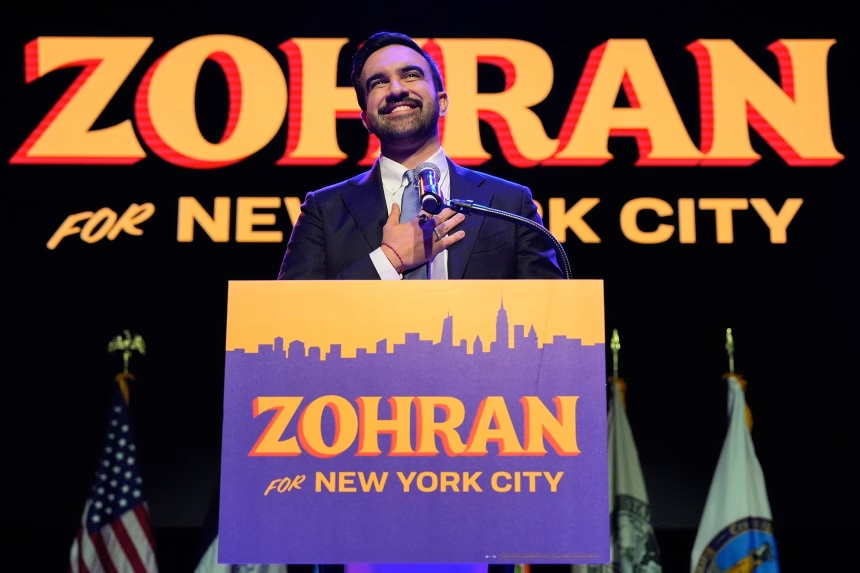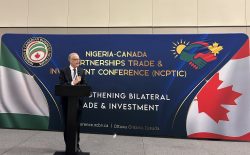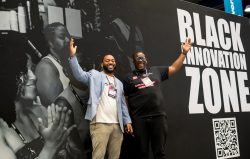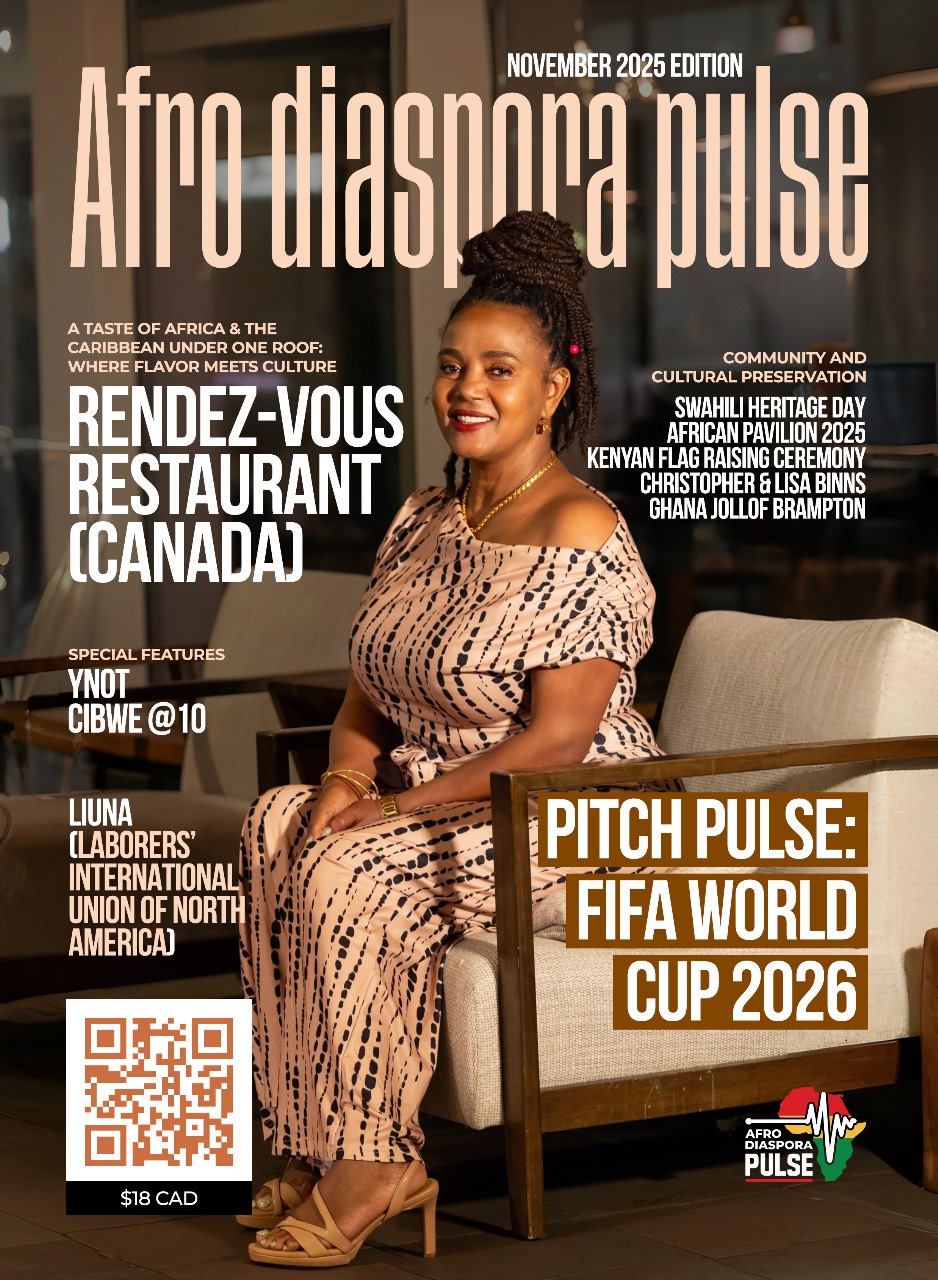New York — History unfolded Tuesday night as Zohran Mamdani, a 34-year-old Ugandan-born state assemblyman and self-described democratic socialist, was elected mayor of New York City, defeating political heavyweight Andrew Cuomo and Republican challenger Curtis Sliwa in a sweeping victory that redrew America’s political map.
Mamdani’s win is more than an electoral triumph; it is a story of migration, identity, and resilience — one that stretches from the bustling streets of Kampala to the subways and boroughs of New York. His victory makes him the first Muslim, first South Asian, and youngest person in over a century to lead America’s largest city.
“In this moment of political darkness, New York will be the light,” Mamdani told jubilant supporters in Brooklyn. “We will fight for you because we are you.”
A Son of the Diaspora
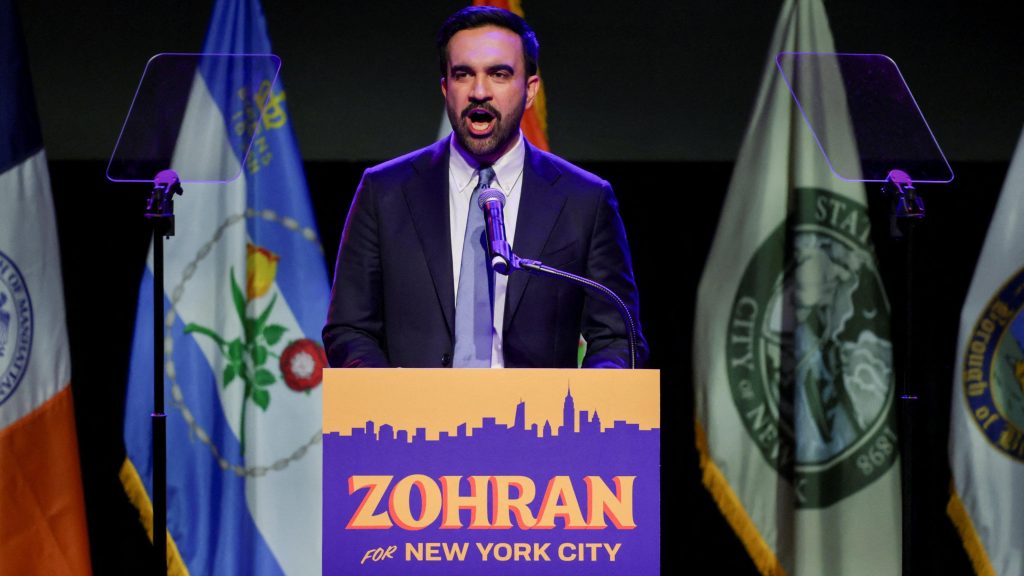
Born in Uganda to Indian parents who fled political turbulence, and raised in Queens, Mamdani’s journey mirrors that of millions in the African diaspora — people whose identities traverse continents and whose success stories redefine belonging.
Educated at the Bronx High School of Science and Bowdoin College, Mamdani is the son of acclaimed scholar Mahmood Mamdani, a Ugandan political theorist at Columbia University, and celebrated filmmaker Mira Nair, known for Monsoon Wedding and Mississippi Masala. Their creative and intellectual heritage, steeped in post-colonial inquiry, shaped a worldview grounded in justice and cross-cultural empathy.
From his early work as a housing counsellor to joining New York’s taxi-driver hunger strike in 2021, Mamdani carved out a reputation as a politician who listens first and lectures later — a rare quality in a city accustomed to power brokers.
Toppling a Dynasty
In defeating Andrew Cuomo — a former governor attempting a comeback — Mamdani did more than win an election. He ended an era. Cuomo had framed the race as a battle for the soul of the Democratic Party, pitting establishment centrism against grassroots progressivism. The result was decisive: a new coalition of young voters, immigrants, working-class families, and multilingual campaigners lifted Mamdani to City Hall.
Campaign footage of Mamdani speaking in Urdu, Bangla, Arabic, and Spanish became symbolic of a movement built not around wealth or ethnicity, but solidarity. “We proved that power belongs in the calloused hands of working people,” he told supporters.
Faith, Identity, and the Politics of Belonging
For the Muslim and African communities across the diaspora, Mamdani’s ascent resonates deeply. It’s not merely a political win — it’s a cultural and spiritual milestone. In a nation still wrestling with Islamophobia and racial tension, the image of a Muslim mayor taking the oath of office in New York City — home to Wall Street and Ellis Island alike — is profoundly symbolic.
London’s Mayor Sadiq Khan quickly congratulated him, noting that “New Yorkers chose hope over fear — just as London once did.” Former U.S. President Barack Obama called Mamdani’s victory “a reminder that when diverse communities stand together around fairness and compassion, progress follows.”
A Progressive Face-Off with Trump
The election doubled as the first major political test since Donald Trump’s return to the White House earlier this year. The president, himself a New York native, mocked Mamdani as a “communist” and warned that he would “take over the city.”
Mamdani’s retort was swift and sharp: “If anyone can show a nation betrayed by Donald Trump how to defeat him, it is the city that gave rise to him.” His defiance — equal parts intellect and poetry — ignited crowds from the Bronx to Brooklyn.
Minutes later, Trump fired back on Truth Social: “…AND SO IT BEGINS!”
A Symbol for Global Youth
At 34, Mamdani embodies the restless idealism of a generation that has grown up amid inequality and digital activism. His policy promises — rent freezes, free public transport, universal childcare funded by taxing the wealthy — reflect a global frustration shared by young voters from Lagos to London.
His wife, Rama Duwaji, a 28-year-old Syrian-American artist and New York’s first Gen Z First Lady, adds another layer to the city’s evolving story. Together, they represent a mosaic of global identities converging in America’s most multicultural metropolis.
A Beacon for the African Diaspora
Across African communities in North America and Europe, Mamdani’s victory is seen as validation of years of civic engagement and quiet perseverance. For many immigrants and their children, his success confirms what diaspora leaders have long argued — that representation matters not only for symbolism but for policy impact.
“Mamdani’s story proves that the African diaspora is not a peripheral participant in Western democracy,” said Dr. Aisha Okoye, an immigration scholar at York University in Toronto. “It’s becoming a driving force within it.”
From Toronto’s Little Jamaica to London’s Peckham, social media timelines lit up with celebration. Young Africans hailed him as “our mayor of possibility” — proof that the children of immigrants can lead the world’s most influential cities without erasing their roots.
The Road Ahead
When Mamdani takes office on January 1, 2026, he will inherit a city of 8.5 million people, a $115 billion budget, and immense expectations. His progressive agenda will face the realities of bureaucracy, corporate power, and federal tension.
Yet, for millions watching across the diaspora, his victory is already enough. It signals that political power is no longer the privilege of a few but the promise of the many.
“This victory is not the end,” Mamdani reminded supporters. “It’s the beginning of a new story — one where power finally belongs to the people.”

